October 15 stands as one of history’s most eventful days, witnessing the rise and fall of empires, groundbreaking discoveries, and moments that shaped our modern world across centuries of human achievement.
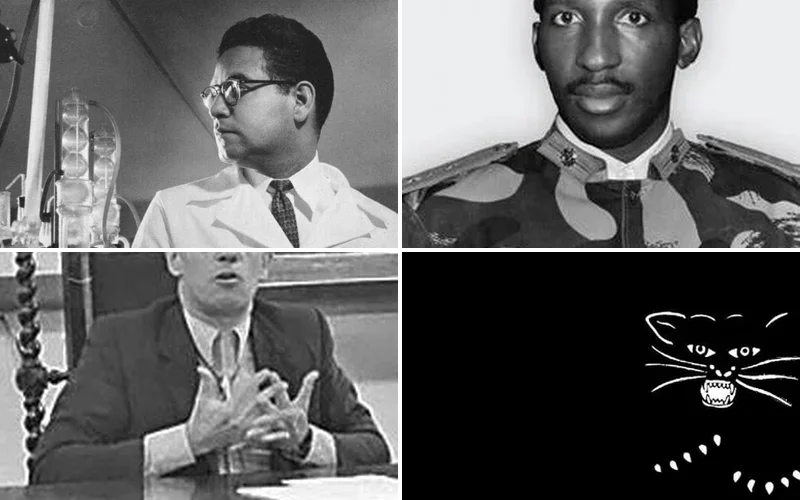
Politics and Government Events on October 15
1940 – President Lluís Companys of Catalonia Executed
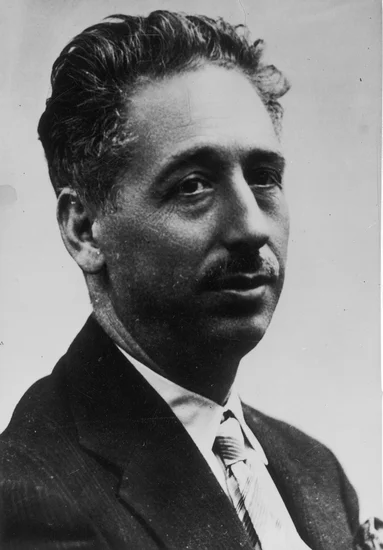
The Francoist government executed Lluís Companys, the President of Catalonia, marking a dark chapter in Spanish Civil War history. His death symbolized the brutal suppression of Catalan autonomy under Franco’s regime.
The execution sent shockwaves through Republican circles and demonstrated Franco’s determination to eliminate political opposition. Companys became a martyr for Catalan independence, his legacy inspiring future generations of autonomy advocates.
1944 – Germany Replaces Hungarian Government
Nazi Germany forcibly replaced the Hungarian government after Hungary announced an armistice with the Soviet Union. This dramatic intervention demonstrated Germany’s desperation to maintain Eastern European allies.
The occupation marked Hungary’s complete loss of sovereignty and intensified persecution of Hungarian Jews. German forces installed a puppet regime that would continue fighting alongside the Axis until the war’s end.
1991 – Baltic States Sign OSCE Final Act
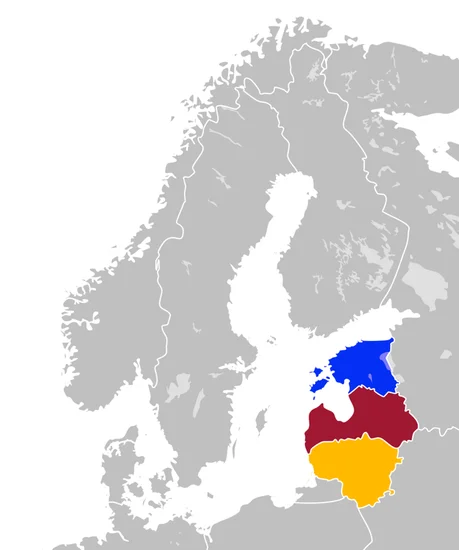
The leaders of Estonia, Latvia, and Lithuania signed the OSCE Final Act in Helsinki, cementing their return to European diplomatic structures. Arnold Rüütel, Anatolijs Gorbunovs, and Vytautas Landsbergis represented their newly independent nations.
This historic signing marked the Baltic States’ formal reintegration into European security architecture after five decades of Soviet occupation. The ceremony symbolized their successful transition from Soviet republics to sovereign European democracies.
1994 – United States Returns Aristide to Haiti

The Clinton administration successfully returned Jean-Bertrand Aristide to Haiti, restoring the country’s first democratically elected president to power. This intervention ended years of military rule and international sanctions.
American forces facilitated the peaceful transition, demonstrating renewed commitment to democratic governance in the Caribbean. Aristide’s return marked a significant victory for international diplomatic pressure over military coups.
1979 – El Salvador Coup Begins Civil War
A military coup overthrew President Carlos Humberto Romero in El Salvador, triggering the devastating twelve-year Salvadoran Civil War. The uprising reflected deep social tensions and economic inequality plaguing the nation.
This political upheaval would claim over 75,000 lives and displace millions of Salvadorans. The conflict became a proxy war during the Cold War, with superpowers backing opposing sides.
Military and Naval History on October 15
1965 – First Draft Card Burned in Anti-War Protest
The Catholic Worker Movement burned a draft card during an anti-war rally, resulting in the first arrest under new federal legislation. This act of civil disobedience marked a turning point in Vietnam War protests.
The symbolic burning galvanized the anti-war movement and inspired countless similar demonstrations across America. Federal authorities recognized the powerful symbolism of draft resistance and moved aggressively to prosecute offenders.
1987 – Burkina Faso Coup Kills President Sankara
A military coup in Burkina Faso overthrew and killed President Thomas Sankara, ending his revolutionary socialist government. The charismatic leader had implemented radical reforms during his four-year rule.
Sankara’s assassination eliminated one of Africa’s most progressive leaders and reversed many of his social and economic reforms. His death marked the end of Burkina Faso’s brief experiment with revolutionary socialism.
1966 – Black Panther Party Founded

Huey P. Newton and Bobby Seale created the Black Panther Party in Oakland, California, establishing one of America’s most influential civil rights organizations. The party advocated for armed self-defense and revolutionary socialism.
The Panthers challenged police brutality and provided community services including free breakfast programs for children. Their militant stance and distinctive black berets made them both feared by authorities and celebrated by supporters.
Science and Discovery Milestones on October 15
1956 – FORTRAN Programming Language Debuts
FORTRAN, the first modern computer programming language, was shared with the coding community for the first time. This revolutionary development transformed scientific computing and mathematical research.
The language enabled scientists and engineers to write complex programs using familiar mathematical notation instead of machine code. FORTRAN’s introduction accelerated the adoption of computers in research institutions worldwide.
1951 – Birth Control Pill Synthesis Completed
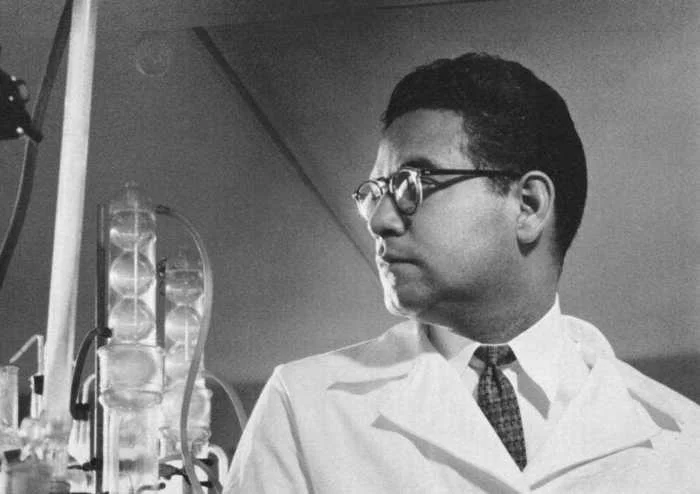
Mexican chemist Luis E. Miramontes completed the synthesis of norethisterone, the foundation for early oral contraceptives. This groundbreaking achievement revolutionized reproductive medicine and women’s health.
The synthesis represented a crucial step toward developing the birth control pill, which would transform family planning worldwide. Miramontes’ work contributed to women’s reproductive autonomy and social liberation movements.
1991 – “Oh-My-God Particle” Detected
The University of Utah HiRes observatory detected an ultra-high-energy cosmic ray with energy 40 million times greater than the highest-energy protons produced in particle accelerators. Scientists nicknamed it the “Oh-My-God particle.”
This extraordinary detection challenged existing theories about cosmic ray origins and acceleration mechanisms. The particle’s enormous energy suggested unknown astrophysical processes operating at unprecedented scales.
1997 – Cassini Space Probe Launches

NASA’s Cassini spacecraft launched from Cape Canaveral, beginning its epic journey to Saturn and its moons. The ambitious mission represented the most complex planetary exploration project ever attempted.
Cassini would spend thirteen years studying the Saturn system, revolutionizing our understanding of planetary rings and moon formations. The mission discovered liquid water on Saturn’s moon Enceladus and revealed Titan’s complex atmospheric chemistry.
2001 – Galileo Spacecraft Approaches Jupiter’s Moon Io

NASA’s Galileo spacecraft passed within 112 miles of Jupiter’s volcanic moon Io, providing unprecedented close-up observations of its active geology. The flyby revealed dramatic volcanic activity and sulfur-rich surface features.
These detailed observations transformed scientific understanding of tidal heating and volcanic processes on other worlds. Galileo’s data showed Io as the most volcanically active body in our solar system.
Cultural and Arts Events on October 15
1979 – Malta Labour Party Supporters Attack Media
Supporters of the Malta Labour Party ransacked and destroyed the Times of Malta building along with other Nationalist Party locations. The violent attacks represented a dark period in Maltese political history.
The destruction of media infrastructure threatened press freedom and democratic discourse on the island nation. These events highlighted the intense political polarization that characterized Malta during this turbulent period.
Religious and Social Events on October 15
2016 – Montreal Protocol Amended for HFC Phase-Out
One hundred and ninety-seven nations amended the Montreal Protocol to include hydrofluorocarbon phase-out provisions. This unprecedented global agreement represented the largest climate action in history.
The amendment demonstrated remarkable international cooperation on environmental protection, building on the protocol’s success in healing the ozone layer. The HFC phase-out promised to prevent significant global warming in coming decades.
2024 – Christian Crown Prince of Denmark Born

Crown Prince Christian of Denmark was born, securing the Danish royal succession for another generation. His birth represented continuity for one of Europe’s oldest monarchies.
The prince’s arrival delighted the Danish public and strengthened the monarchy’s popular support. His future reign will likely span much of the twenty-first century.
2007 – New Zealand Anti-Terrorism Raids
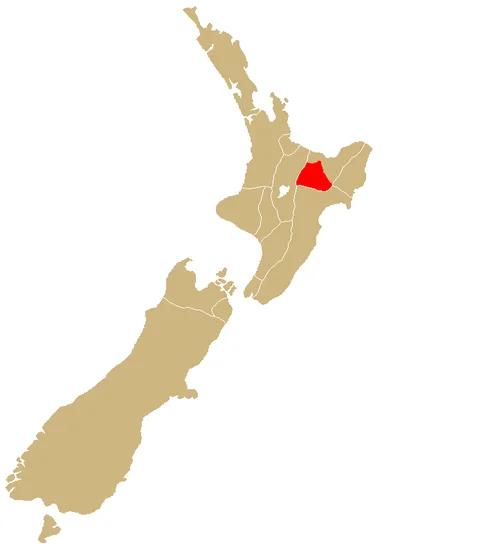
Seventeen activists were arrested in New Zealand’s first major anti-terrorism operation since September 11, 2001. The raids targeted suspected extremist groups planning violent activities.
The controversial operation raised questions about civil liberties and the balance between security and freedom in democratic societies. The arrests sparked national debate about surveillance powers and police tactics.
Business and Economic Events on October 15
1923 – German Rentenmark Introduced

Germany introduced the Rentenmark to combat devastating hyperinflation that had destroyed the Weimar Republic’s economy. The new currency represented a desperate attempt to restore monetary stability.
The Rentenmark’s introduction marked a turning point in Germany’s economic recovery, ending the hyperinflation that had wiped out middle-class savings. This monetary reform helped stabilize German society and politics.
2008 – Dow Jones Suffers Historic Drop
The Dow Jones Industrial Average plummeted 733.08 points, falling 7.87% in the second-worst percentage drop in the index’s history. The crash reflected deepening financial crisis and investor panic.
This dramatic decline symbolized the severity of the global financial crisis and its impact on American markets. The crash wiped out trillions in wealth and accelerated the Great Recession.
2000 – Herbert Dow’s Legacy Remembered
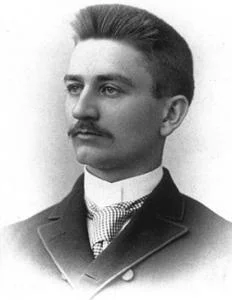
Herbert Henry Dow, founder of the Dow Chemical Company, died, leaving behind one of America’s largest chemical corporations. His innovative business practices had revolutionized the chemical industry.
Dow’s entrepreneurial vision transformed a small Michigan operation into a global industrial giant. His company’s products became essential to countless industries and everyday consumer goods.
Transportation and Infrastructure on October 15
1910 – First Atlantic Airship Crossing Attempt
The airship America launched from New Jersey in the first attempt to cross the Atlantic Ocean using powered aircraft. This daring expedition pushed the boundaries of early aviation technology.
The ambitious flight demonstrated growing confidence in lighter-than-air transportation for long-distance travel. Although unsuccessful, the attempt inspired future transatlantic aviation achievements and technological innovations.
1928 – Graf Zeppelin Completes Transatlantic Flight
The German airship Graf Zeppelin completed its first transatlantic journey, landing safely at Lakehurst, New Jersey. This achievement marked a milestone in international passenger aviation.
The successful crossing demonstrated the viability of scheduled airship service between Europe and America. The Graf Zeppelin’s elegant flight captured public imagination and promoted international air travel.
1932 – Tata Airlines Inaugural Flight
Tata Airlines, later renamed Air India, completed its maiden flight, marking the beginning of Indian commercial aviation. The airline pioneered air transport in the Indian subcontinent.
This historic flight established India’s presence in international aviation and connected the vast subcontinent through air service. Tata Airlines would eventually become the nation’s flagship carrier.
1939 – LaGuardia Airport Dedicated

The New York Municipal Airport, later renamed LaGuardia Airport, was officially dedicated, expanding New York City’s aviation infrastructure. The airport strengthened the city’s position as a major transportation hub.
LaGuardia’s opening provided much-needed relief to overcrowded airports and improved domestic air service. The facility became crucial to New York’s economic development and tourism industry.
1970 – West Gate Bridge Collapse
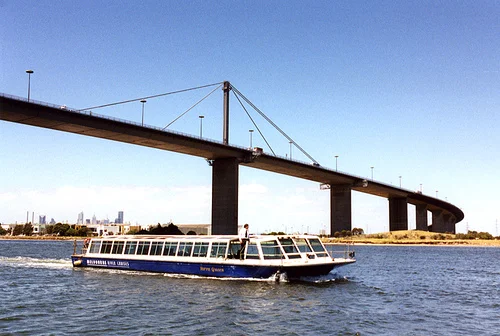
A span of Australia’s West Gate Bridge collapsed during construction, killing 35 workers in the country’s worst industrial accident. The tragedy highlighted serious safety deficiencies in major infrastructure projects.
The collapse prompted comprehensive reviews of construction safety standards and engineering practices throughout Australia. The disaster led to significant reforms in workplace safety regulations and construction oversight.
Sports and Recreation on October 15
1989 – Wayne Gretzky Becomes NHL Points Leader

Wayne Gretzky surpassed Gordie Howe to become the NHL’s all-time leading points scorer, cementing his status as hockey’s greatest player. The achievement occurred during his time with the Los Angeles Kings.
Gretzky’s record-breaking performance demonstrated his exceptional skill and consistency throughout his career. The milestone attracted new fans to hockey and elevated the sport’s profile in non-traditional markets.
1954 – Hurricane Hazel Devastates North America
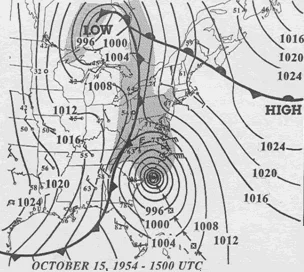
Hurricane Hazel struck the eastern seaboard with devastating force, killing 95 people and causing massive flooding as far north as Toronto. The storm represented one of the most destructive hurricanes in recorded history.
The hurricane’s unprecedented inland penetration shocked meteorologists and emergency planners. Hazel’s destruction led to improved hurricane tracking systems and disaster preparedness protocols.
2006 – Kiholo Bay Earthquake Rocks Hawaii
A magnitude 6.7 earthquake struck Hawaii’s Kiholo Bay, causing property damage, injuries, and forcing the closure of Honolulu International Airport. The powerful tremor disrupted life across the Hawaiian islands.
The earthquake highlighted Hawaii’s vulnerability to seismic activity and prompted reviews of building codes and emergency procedures. The event demonstrated the islands’ geological instability despite their paradise reputation.
Notable Births on October 15
1924 – Lee Iacocca Born
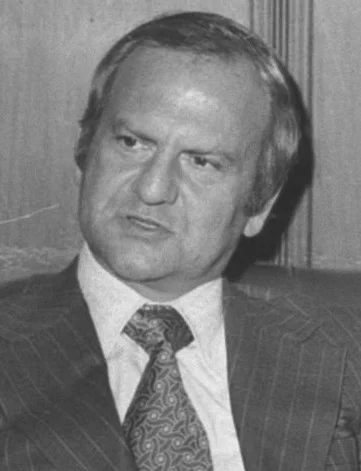
American businessman Lee Iacocca was born in Detroit, Michigan, beginning a life that would reshape the American automotive industry. His immigrant parents instilled strong work ethics and business acumen.
Iacocca would later revive the Chrysler Corporation and introduce the revolutionary Ford Mustang. His leadership style and marketing genius made him one of America’s most celebrated business executives.
1931 – A. P. J. Abdul Kalam Born

A. P. J. Abdul Kalam was born in Tamil Nadu, India, starting a journey that would lead to the presidency. His humble beginnings as a fisherman’s son inspired millions of Indians.
Kalam became known as the “People’s President” and India’s foremost aerospace scientist. His work on ballistic missiles and satellite technology earned him the title “Missile Man of India.”
1920 – Mario Puzo Born
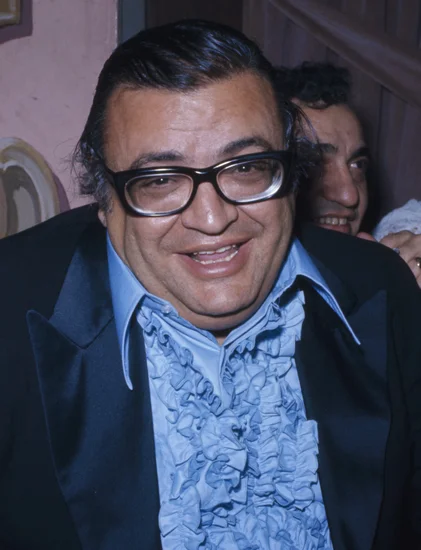
American author Mario Puzo was born in New York City, beginning a literary career that would define modern crime fiction. His immigrant family’s struggles influenced his later storytelling.
Puzo would create “The Godfather” trilogy, revolutionizing both literature and cinema. His portrayal of organized crime became the definitive cultural representation of the American Mafia.
1926 – Michel Foucault Born
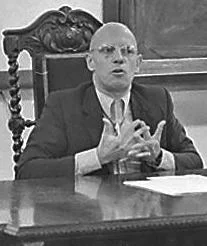
French philosopher Michel Foucault was born in Poitiers, France, launching one of the most influential intellectual careers of the twentieth century. His early academic brilliance foreshadowed groundbreaking contributions to philosophy.
Foucault would revolutionize understanding of power, knowledge, and social institutions. His theories on surveillance, punishment, and sexuality transformed multiple academic disciplines.
1908 – John Kenneth Galbraith Born
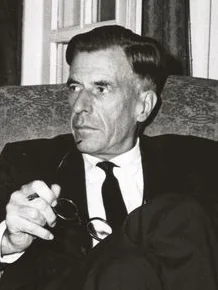
Canadian-American economist John Kenneth Galbraith was born in Ontario, Canada, beginning a career that would influence economic policy for decades. His rural upbringing shaped his understanding of economic inequality.
Galbraith would become one of America’s most prominent economists and served as ambassador to India. His books on economics reached general audiences and challenged conventional economic wisdom.
1917 – Arthur M. Schlesinger Jr. Born
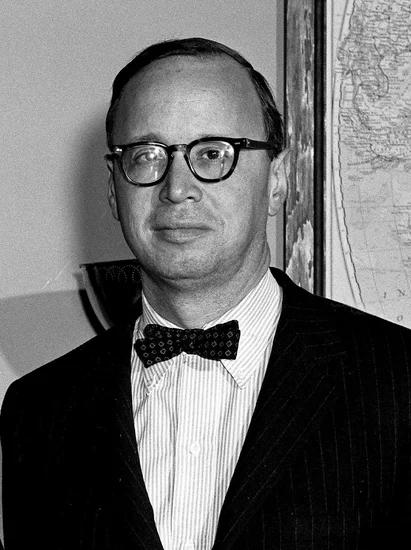
American historian Arthur M. Schlesinger Jr. was born in Columbus, Ohio, starting a distinguished career in historical scholarship. His academic family background fostered intellectual curiosity from an early age.
Schlesinger would become a Pulitzer Prize-winning historian and presidential advisor. His works on American history and politics shaped public understanding of the presidency and democratic governance.
1963 – Fela Kuti Born

Nigerian musician Fela Kuti was born in Abeokuta, Nigeria, beginning a revolutionary musical and political career. His middle-class family provided educational opportunities that broadened his worldview.
Kuti would create Afrobeat music and become a fierce critic of Nigerian corruption and colonialism. His musical innovations and political activism made him an international icon of resistance.
Notable Deaths on October 15
1917 – Mata Hari Executed
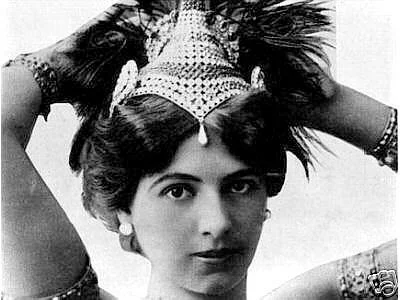
Dutch exotic dancer Mata Hari was executed by French forces for alleged espionage during World War I. Her trial and execution became one of the war’s most controversial legal proceedings.
The execution eliminated a figure who had become synonymous with international intrigue and seduction. Modern historians question the evidence against her and suggest she was scapegoated for French military failures.
1946 – Hermann Göring Dies
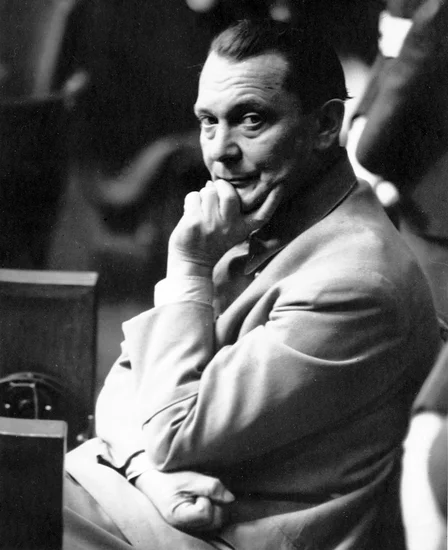
Nazi leader Hermann Göring died in his prison cell hours before his scheduled execution for war crimes. His death by cyanide poisoning denied the Allies their most prominent Nazi defendant.
Göring’s death robbed the Nuremberg trials of their most dramatic figure and denied victims the satisfaction of his execution. His final act of defiance demonstrated the Nazi leadership’s commitment to avoiding accountability.
1964 – Cole Porter Dies
American composer Cole Porter died in Santa Monica, California, ending one of the most brilliant careers in American popular music. His sophisticated lyrics and memorable melodies defined the golden age of American songwriting.
Porter’s death silenced a unique voice in American culture that had created timeless standards like “Night and Day” and “Anything Goes.” His wit and musical sophistication influenced generations of songwriters.
1987 – Thomas Sankara Assassinated
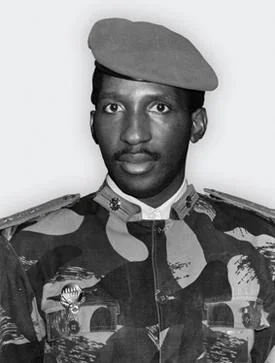
Burkinabe President Thomas Sankara was killed during a military coup that ended his revolutionary government. His assassination eliminated one of Africa’s most progressive and incorruptible leaders.
Sankara’s death marked the end of his ambitious programs for social reform and African self-reliance. His murder shocked the international community and ended hopes for radical transformation in Burkina Faso.
2018 – Paul Allen Dies

Microsoft co-founder Paul Allen died in Seattle, Washington, ending a career that had transformed computing and philanthropy. His partnership with Bill Gates had revolutionized personal computing.
Allen’s death removed a visionary technologist who had also excelled in sports ownership and scientific research. His philanthropic contributions to education and disease research continued his legacy of innovation.
2000 – Konrad Emil Bloch Dies
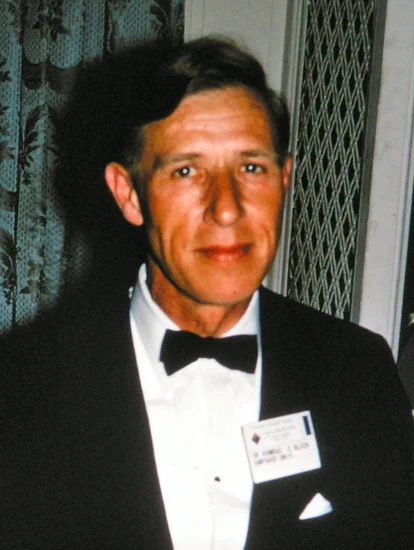
Polish-American biochemist Konrad Emil Bloch died in Massachusetts, concluding a Nobel Prize-winning career in cholesterol research. His discoveries revolutionized understanding of lipid metabolism.
Bloch’s death marked the loss of a pioneering researcher whose work on cholesterol synthesis earned him the Nobel Prize. His research laid the foundation for modern treatments of heart disease and metabolic disorders.
Holidays and Observances on October 15
Breast Health Day
European nations observe Breast Health Day to raise awareness about breast cancer prevention and early detection. Medical organizations promote screening programs and health education initiatives.
The observance encourages women to prioritize regular health checkups and self-examinations. Healthcare providers use this day to educate communities about risk factors and treatment options.
World Students’ Day
International communities celebrate World Students’ Day to honor educational achievement and promote access to learning opportunities. Educational institutions worldwide organize special events and recognition ceremonies.
The celebration highlights the importance of education in personal development and social progress. Students and educators use this day to advocate for educational equity and quality learning environments.
National Latino AIDS Awareness Day
The United States observes National Latino AIDS Awareness Day to address HIV/AIDS prevention and treatment in Latino communities. Health organizations promote testing, education, and support services.
The observance recognizes the disproportionate impact of HIV/AIDS on Latino populations and promotes culturally appropriate prevention strategies. Community leaders work to reduce stigma and increase access to healthcare services.
